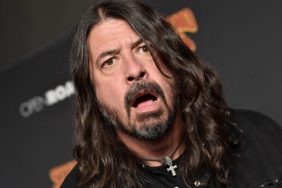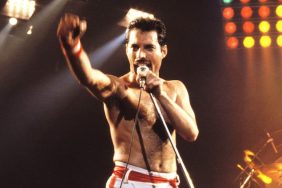
CraveOnline: Do you feel like you’ve cracked it? Do you feel like there was a moment when you were researching the documentary where you felt like you understood now? Or do you feel like it’s always going to be elusive?
Brett Morgen: No. There’s a certain degree of arrogance to say that I’ve cracked it when I never knew him in life, but I do feel that I was able to get as close as I can, and I only say that because I’m the first person who has had this access to all of these materials. Even when Charlie Cross was doing his authorized biography on Kurt, he only had access to materials that I think Courtney had, and other stuff. I don’t believe he ever accessed Wendy Cobain’s materials. Wendy kept everything through Kurt’s teenage years, including all those Super-8 films.
I know Charlie had never heard that audio autobiography Kurt does, where he talks about losing his virginity, which to me… that was the moment where I felt it was like Rosebud. I had heard that tape, I had listened to it, working with it and cutting it for some time, and there was a moment… You know, I was going chronologically through the film, I was going deeper, and at some point I said, “Wait a second.” And I went back and I listened to that tape and there were two things that really struck me.
Yeah?
One was on the tape and another was something I heard Kurt say. The first thing was, when Kurt talks about the divorce, he talked about being ashamed and embarrassed, okay? Most kids that I know blame themselves when their parents get divorced, but shame is not the first thing that comes to mind. Embarrassed is not the first thing that comes to mind. When my parents were separated those were two emotions I didn’t have.
In the story where he loses his virginity, there’s a moment where he says, “I couldn’t handle the ridicule so I decided to take my own life.” Whether you believe the story as fact or a piece of self-mythology, or just pure fiction, the emotions invested in that story are, I believe, completely accurate and representative of how Kurt felt growing up. And the idea of taking one’s life because he can’t handle the ridicule is very specific, very poignant and very stirring… and I believe that at the end of his life, that sentiment would come back into play.
So once that was acknowledged, once I sort of locked in on that narrative, we traced it backwards to its origins and forwards to roam. I think that what emerges is sort of [an undoing] of traditional mythologies related to Kurt Cobain, and in its place [is] a much more humanistic portrait of a man who most likely didn’t take his life because he didn’t want to be famous, but because his family had been defiled in his mind.
You mean his new family, with Courtney Love and Frances?
Yeah, the family with Courtney. The popular myth is that Kurt wanted acceptance and he [sought] it out through music, but I really [think] the underlying beneath it all was Kurt’s deep desire for connection through family, and that really, the true goal was not to become famous but to procreate and become the family that he didn’t have. Because he didn’t have a family. He became completely alienated from his own family and he desperately wanted that, so it’s not a mistake or a surprise that two months after the release of “Nevermind” he asked Courtney to have a baby.
So in my chapter headings for the film – when I was working on it I had chapter headings – there was three chapters called “Reconstructing Family 1,” “Reconstructing Family 2,” “Reconstructing Family 3.” The first was one was when he meets Krist [Novoselic] and forms the band. The second one was when he meets Tracy Marander, and the third time in the context of the film was with Courtney. Those were all active attempts to sort of establish a connection and a family, and I think that was really Kurt’s lifelong pursuit. That’s a narrative that I don’t think has been wrapped into the current Cobain mythology.
It’s to me more poignant, more human, and actually sadder at the end, that he didn’t die because he didn’t want to be famous, he died of a broken heart. It’s almost Shakespearean it’s so simple. It’s so, for me, relatable on some many levels. But we didn’t start the movie… when I started the movie it was like, “Oh, we’re going to take his art and we’re going to take his music and we’re going to create this experience of Kurt Cobain.” The goal was not to unravel the mystery of Kurt Cobain, in the sense of “why did he die,” but it became evident really early on that the film, when you arrived at the end, the audience needed at the very least the tools to draw their own conclusions as to why he passed on.








